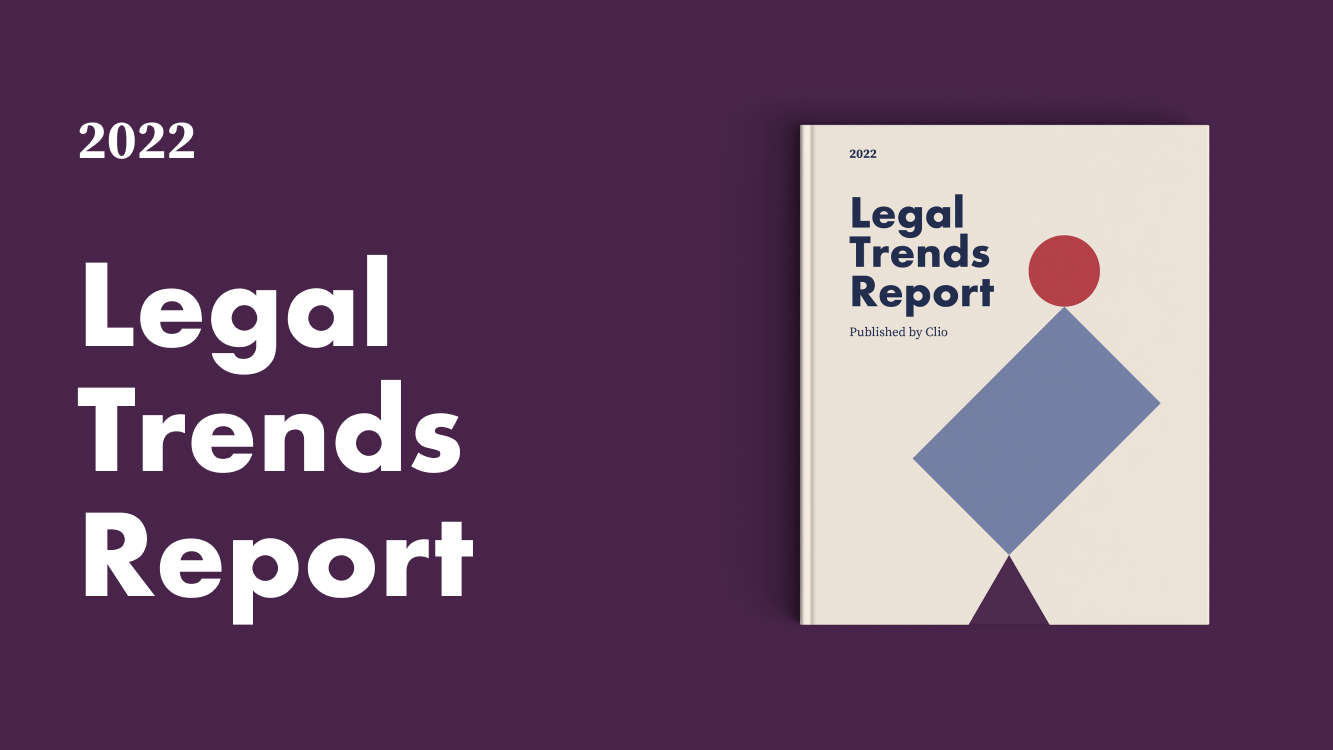At its annual Clio Cloud Conference today, the law practice management company Clio released the 2022 edition of its annual Legal Trends Report – its seventh year of the report.
It finds that law firms are seeing an average 10% increase in the growth of new business, but that their fees are 3% below where they should be given recent trends in inflation.
It also finds a profession grappling with work-life balance, as many lawyers are changing jobs in search of work-life balance and 49% say they would rather work from home.
“The past two years have fundamentally changed how lawyers define the role of work in their lives,” said Jack Newton, Clio’s founder and CEO. “The challenge for every law firm is to meet the expectations of clients and employees while balancing business objectives in a fluctuating economy.
“Technology is enabling much-needed flexibility for today’s lawyers, and this latest report inspires Clio to keep innovating for a transformative and sustainable legal future.”
Hourly Rates Below CPI
The Legal Trends Report includes Clio’s billable hour index, which measures the average cost for an hour of legal services in the U.S. It finds that the average price of legal services has not kept pace with the increased cost of goods and services since 2019.
Measured by changes in the Consumer Price Index (CPI), inflation has risen dramatically this year, reaching as high as 9.1% in mid-2022. At the same time, average lawyer fees are 3% below where they should be given recent trends in inflation, the report says.
Firms See More Business
The report finds that law firms have seen a steady increase in the number of matters they handle.
Compared to 2019, the average caseload was up 10% from March 2021 to June 2022, while average billable hours were 22% higher during the same time. On average, lawyers are billing more hours for every case they take on.
Over the same period, the number of hours billed to clients was up by an average of 28% compared to 2019, and average collected revenue was up by 31%, meaning that every hour of legal work has become more valuable to firms overall.
The report finds:
- Utilization rates saw a 6% relative increase from 2021.
- Realization and collection rates have sustained the significant increase seen in recent years, remaining at 84% and 89% respectively.
- Despite recent increases, firms could still collect up to 34% more revenue by optimizing realization and collection rates.
Another finding of the survey is that lawyers increasingly work irregular hours. In fact, 86% of lawyers say they work hours outside the typical 9-5 workday. At least 69% of lawyers communicate with clients on weekends and 74% after hours.
Perhaps not surprisingly, lawyers who work irregular hours report lower job satisfaction, while those who work regular hours rated their emotional wellness higher. Those who work regular hours were also more satisfied with their earnings.
Lawyers want Flexible Work
The report finds that the “Great Resignation” has swept through the legal industry with resignation rates as high as 19%. This signals an employee market where professionals are demanding work-life balance and higher salaries.
According to the report, among those legal professionals who left or planned to leave a job, work-life balance was just as likely as salary to influence their decision:
- 37% of legal professionals cited salary increase as a reason for changing jobs.
- 37% of legal professionals cited work-life balance as a reason for changing jobs.
The report finds that legal professionals have returned to working regularly from an office, but that they also have embraced workplace flexibility, spending less time in an office overall. Before 2020, about 40% of lawyers worked exclusively from an office. Now, fewer than 30% do.
The report says that the legal industry is almost evenly divided on working from home, with 49% of lawyers expressing a preference to work from home.
For firms to remain competitive, the report concludes, they should maintain a flexible approach to the office and its role in both personal and professional well-being.
Firms Benefit from Cloud Software
Firms using cloud-based legal practice management software are better positioned to succeed in this new working environment, the report finds.
As more lawyers embrace flexible work, data from the report shows, firms that have yet to adopt cloud-based practice management may struggle to maintain continuity.
Legal professionals who work at firms that use cloud-based platforms express more satisfaction in their roles than those at firms that don’t, the report says. They also were 60% more likely to have positive relationships with their clients, the report says.
Among other findings, lawyers using cloud-based practice management platforms were:
- 44% more likely to have positive relationships with colleagues.
- 44% more likely to want to work throughout the day rather than a traditional 9-5 schedule.
- 29% more likely to be happy with their professional life
“A law firm’s most valuable asset is its people—lawyers, professionals, and clients are all integral to the success of the firm,” said Newton. “For a long time, finding a healthy, productive balance between work and personal life meant a sacrifice on either front. Today’s thriving firms can embrace new models for work-life balance, and capitalize on opportunities for growth well into the future with a better understanding of the path forward.”
The 2022 Legal Trends Report is now available at clio.com/ltr.
 Robert Ambrogi Blog
Robert Ambrogi Blog